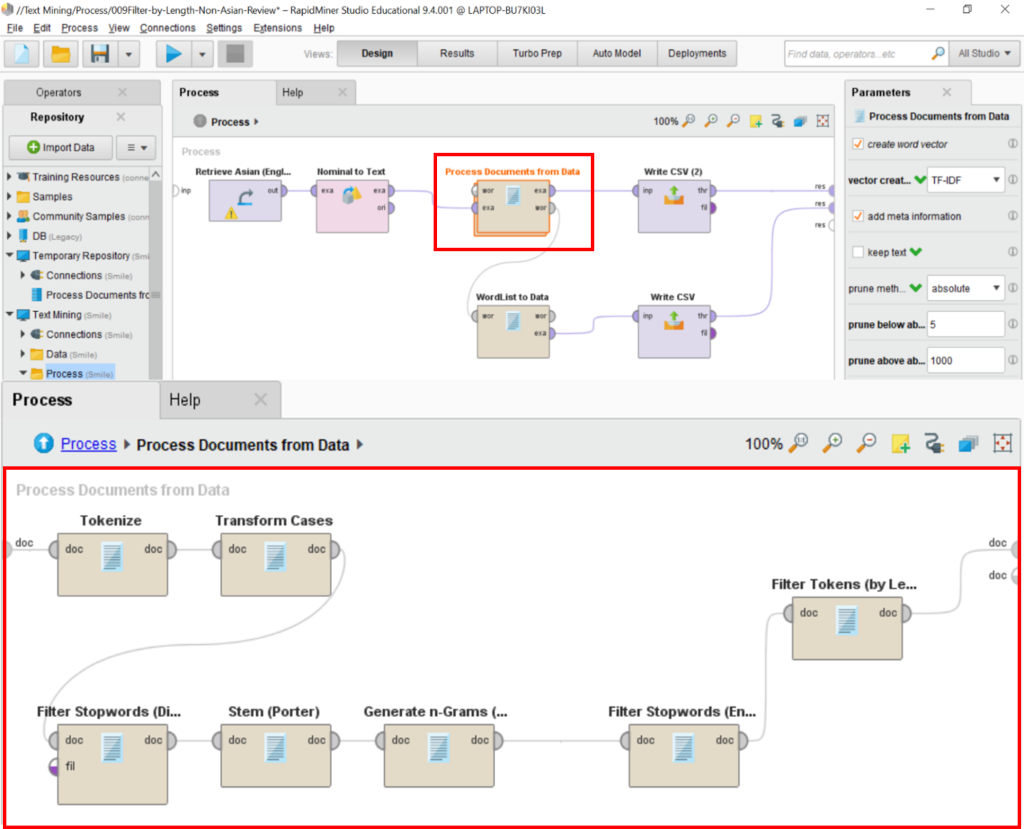
By Raksmey Sann, Pei-Chun Lai (2020)
International Journal of Hospitality Management, 91, 102678.
Introduction: Online complaints have become increasingly influential on the purchasing behavior of customers in recent years. In an effort to analyze large quantities of textual complaints and detail the various aspects of them, Aspect-Based Sentiment Analysis was looked to as an ideal framework to take on the task.
Purpose: This study set out to synthesize specific service failure items and categorize them into the groupings related to the hotel guest cycle and the corresponding operations, then compare the patterns of expression used by Asian and Non-Asian guests as they related to their hotel experiences.
Design/Methodology/Approach: A total of 390,236 online complaint terms posted about 353 hotels in the UK by hotel guests from 63 nations were manually derived from TripAdvisor for analysis. In line with previous studies by Sezgen, Mason, & Mayer (2019); and Xu & Li (2016), the textual data was processed according to the following steps (see Figure 1). Then, to detect the aspect category, the researchers made use of terms that would be indicators of the presence of the aspect—these are referred to as Aspect Terms. Before the aspect-based sentiment analysis could be processed, the aspect terms and categories were identified (c.f. Sann & Lai, 2020). Finally, a list was compiled in which the extracted terms and aspects were organized in order of importance. These results were based on the co-occurrence frequency-based method (Brun et al., 2014; Schouten et al., 2018; Sharma & Waghmare, 2019).

Findings: With consideration given to the homophily theory, we posited that Asian and non-Asian guests would exhibit similarities and differences with respect to the service failures they encountered when presented with various items of service. The results confirmed this as Asian guests were shown to encounter more service failures with respect to the engineering segment of operations (e.g. hotel room equipment issues), while non-Asian guests encountered more service failures on the housekeeping end of operations (e.g. toilets, public areas, cleanliness, and bedding). By organizing the failures according to the four stages of the guest cycle, it was observed that approximately 80% of the service failures occurred during the occupancy period.
Originality/Value: This study contributes to the existing literature on hotel guest satisfaction both with respect to the methodology it uses and the new findings it presents on differences in perceptions of service failures members among different cultures.
References:
Brun, C., Popa, D. N., & Roux, C. (2014). XRCE: Hybrid Classification for Aspect-based Sentiment Analysis. Paper presented at the 8th International Workshop on Semantic Evaluation (SemEval 2014), Dublin, Ireland.
Sann, R., & Lai, P. C. (2020). Understanding homophily of service failure within the hotel guest cycle: Applying NLP-aspect-based sentiment analysis to the hospitality industry. International Journal of Hospitality Management, 91. 102678. https://doi.org/10.1016/j.ijhm.2020.102678
Schouten, K., van der Weijde, O., Frasincar, F., & Dekker, R. (2018). Supervised and Unsupervised Aspect Category Detection for Sentiment Analysis with Co-occurrence Data. IEEE Trans Cybern, 48(4), 1263-1275. doi:10.1109/TCYB.2017.2688801
Sezgen, E., Mason, K. J., & Mayer, R. (2019). Voice of airline passenger: A text mining approach to understand customer satisfaction. Journal of Air Transport Management, 77, 65-74. doi:10.1016/j.jairtraman.2019.04.001
Sharma, G., & Waghmare, M. (2019). Review Summarization and Aspect Category Detection with Co-occurrence data by refining Word Embeddings. International Journal of Scientific Research and Review, 07(05), 58-65.
Xu, X., & Li, Y. (2016). The antecedents of customer satisfaction and dissatisfaction toward various types of hotels: A text mining approach. International Journal of Hospitality Management, 55, 57-69. doi:10.1016/j.ijhm.2016.03.003